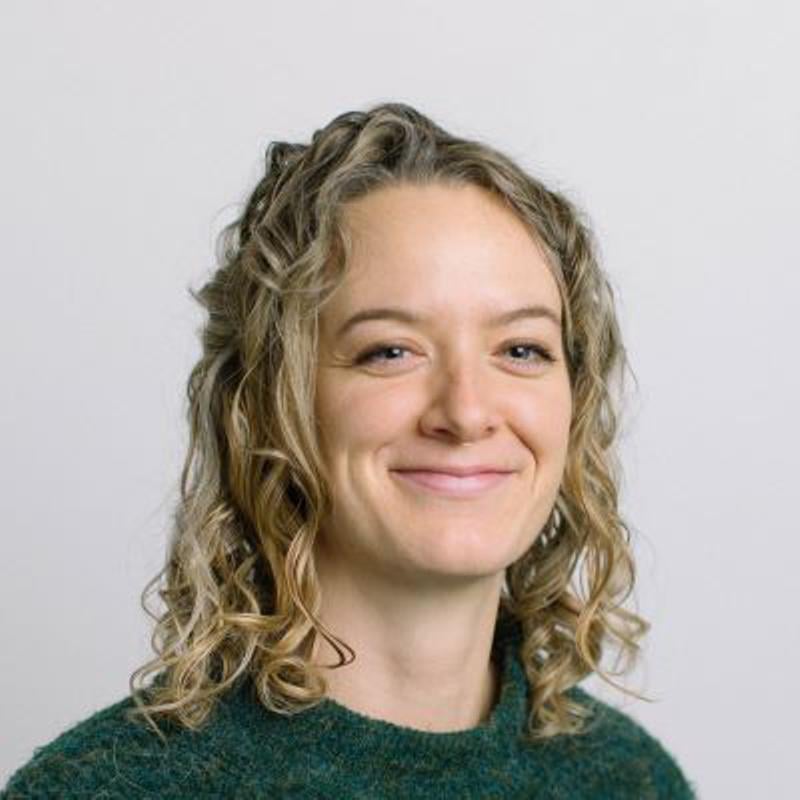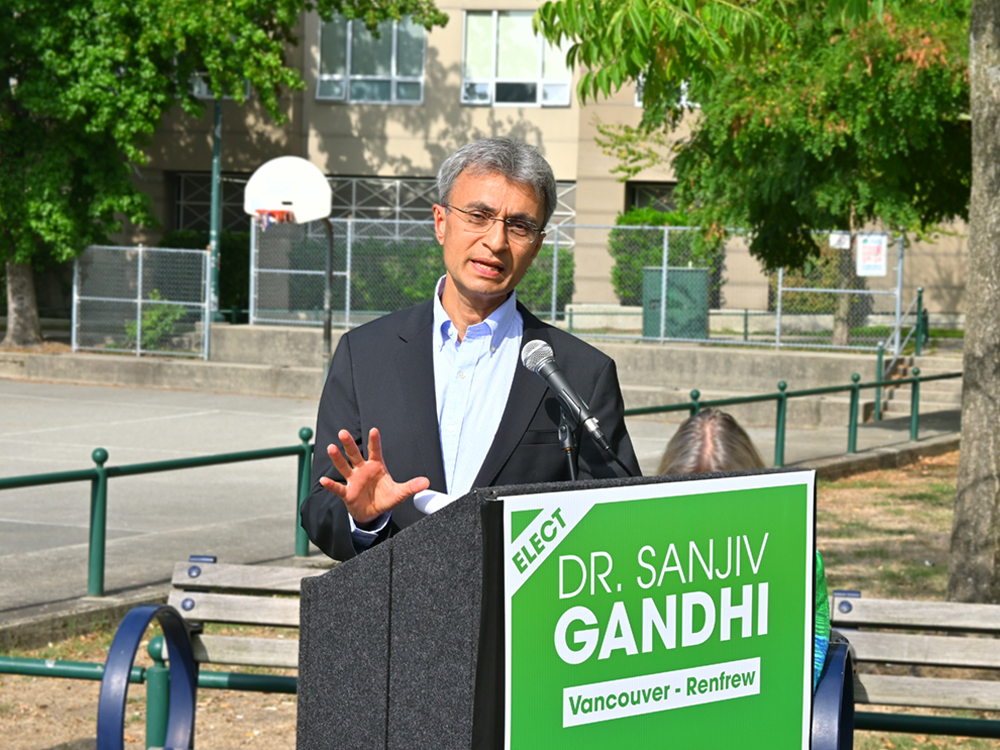A former top B.C. pediatric heart surgeon who joined the BC Greens is running for MLA in Vancouver-Renfrew (formerly known as Vancouver-Kingsway), a seat currently held by NDP Health Minister Adrian Dix.
Dr. Sanjiv Gandhi left his career as a pediatric cardiovascular and thoracic surgeon at B.C. Children’s Hospital early this year after publishing critiques of hospitals and the Health Ministry’s response to COVID-19.
He joined the BC Greens as second deputy leader and announced his candidacy Thursday.
“As the next MLA for Vancouver-Renfrew I am committed to bringing the same passion to this position that I brought daily to the clinic, intensive care unit and operating room for 30 years,” he said at a press conference.
Gandhi said he chose to run in Vancouver-Renfrew, historically an NDP stronghold, because “health care in B.C. is in shambles.”
“I’m running against Health Minister Dix to put a spotlight on where health care needs to go,” Gandhi said.
When asked why he didn’t choose a riding where he would have a better chance of getting in, Gandhi said running in the same riding as Dix gives him “the opportunity — almost obligation given my background — to respectfully challenge and debate what I and the BC Greens feel has been a horrendously mismanaged provincial health-care system replete with poor decisions.”
Most of Gandhi’s candidacy speech focused on health care.
He says he worked in the U.S. for 17 years before returning to Canada in 2010 because he believed in public health care.
“Now public health is crumbling. We’re sending cancer patients to the U.S. for care,” he said, referencing the provincial strategy announced in May to send up to 50 Canadian patients to Washington every week for cancer treatment to help patients access more timely care.
Gandhi says his top priority is helping patients access family doctors. The NDP’s strategy to ramp up funding to better compensate family doctors didn’t include metrics to measure if the boost in funding improved patient access to care, or the quality of care they received, he said.
He says a better strategy is outlined in the BC Greens health-care plan, which calls for multidisciplinary community health centres across the province. These centres would have family doctors, physician assistants, nurse practitioners, mental health professionals and specialists all under one roof, which Gandhi says would boost accessibility.
Gandhi said his second priority would be slashing bureaucracy.
“We have seven health-care authorities in this province with 64 vice-presidents who have the average salary of $400,000 per year. The red tape is phenomenal,” he says. “I can tell you if we eliminated 64 of those vice-presidents tomorrow the quality of care wouldn’t decrease at all. It might actually get better.”
“There is no reason we need that level of bureaucracy in this province,” he said. “A complete revamp of the health-care system is required.”
Gandhi also called for a health-care system that invests in preventative care, mental health services and supports for families facing medical challenges.
The Tyee sought comment from the BC NDP health minister and did not hear back by publication time.
Green Party of Canada Leader Elizabeth May said the lack of access to family doctors in B.C. is personal for her — she doesn’t have a family doctor, which means no one noticed her high blood pressure until she had a stroke on June 29.
“It shouldn’t take a catastrophic event, like a stroke, to get seen by a doctor. That’s what it took for me,” May said, adding that she is recovering.
BC Green Party Leader Sonia Furstenau says she worked closely with Gandhi to produce the BC Greens health-care plan.
Part of that plan calls for increasing access to provincial safer supply programs, where clinicians prescribe people who use drugs pharmaceutical alternatives to illicit street drugs, with the goal of reducing a patient’s use of illicit street drugs as much as possible.
Currently only five per cent of the estimated 100,000 British Columbians who have opioid use disorder are able to access safer supply, experts previously told The Tyee.
“The public health emergency that was declared seven years ago and is killing six people every day is not being treated like an emergency,” Furstenau said. “We need to heed the advice of experts who recognize the response to this emergency needs to be a combination of harm reduction as well as recognizing the causes, a lot of them socioeconomic, that are creating this crisis and the fact that we have an illicit, chaotic, incredibly poisonous drug supply.”
The BC NDP make a lot of “grandiose announcements” without thinking their plans through, especially when it comes to health care and the environment, Gandhi said.
“You can build all the buildings you want, you can buy all the machines you want, but if you don’t have people to work in those buildings or run those machines you may as well take the money and flush it down the toilet,” he said. This is why health-care costs have increased by billions of dollars under the NDP “with worse outcomes,” he said.
“The fires in the Okanagan, Lahaina and Lytton are all the climate crisis,” Gandhi added.
“So what should we be doing? We shouldn’t be subsidizing fossil fuel companies. Sure, we should take shorter showers but we shouldn’t be supporting fracking that uses billions of gallons of water. It’s nonsensical to me.” ![]()
Read more: Health, BC Politics
















Tyee Commenting Guidelines
Comments that violate guidelines risk being deleted, and violations may result in a temporary or permanent user ban. Maintain the spirit of good conversation to stay in the discussion and be patient with moderators. Comments are reviewed regularly but not in real time.
Do:
Do not: